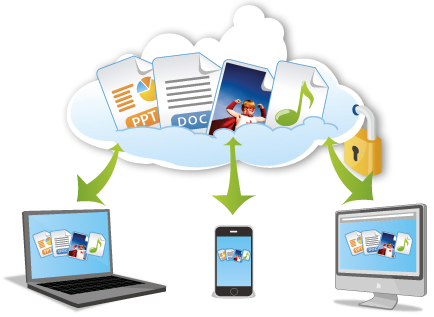Personal cloud solutions--own your data


In the past I've written about the cloud space; the benefits, and the dangers. Recently I went to a family reunion, and recognized a great desire for everyone to stay in touch, and share family information. Photos, documents, old home movies. I ended up configuring a website for the family, containing a wiki, blogs, forums, galleries, event calendars and mailing lists.
All of this is contained within an environment called Tiki, a configurable all-purpose wiki-based website that can be as simple or as complex as you need it to be.
However, this article is not about TikiWiki, although I may visit a review of it in the future. No, right now I'd like to discuss an issue that could affect pretty much everyone: data in the cloud, and data sharing.
I've written in the past about how personal data in the cloud space is not entirely safe. The cloud is convenient, providing a much-needed resource to consumers and businesses alike. The only problem is that the reliability and security of such services has been called into question. Amazon's web services lost a portion of customer data during a recent outage, and Dropbox's security and customer data privacy have been called into question.
Also Read:
- How To Stop Your Personal Wikileaks--Personal Technology Security
- Feet on the Ground, Head in the Cloud
- Hey, you, get off of the Cloud
If any of these issues are a concern to you, there are certainly alternatives. You don't need to have a server in a datacenter; you can have personal cloud access in your own home for a fairly minimal investment.
There are a number of easy to use solutions. One geared towards home use is Pogoplug. It has a very simple to use application which loads onto each of your computers, turning each one into a small cloud server and sharing the data on all of them with each other.
But what if you have one computer with you, and your other one is turned off? Or if you only have one computer, and it's at home and turned off? Well, Pogoplug makes devices for personal and business use as well, which allow you to leave the device running at home with external USB drives attached to it. Through a simple web interface you can access all of the data stored on your Pogoplug unit.
While I quite like Pogoplug, it didn't have a Unix version that I could install on my Ubuntu server other than the simple drive access program. That would be fine if only I was using it, but there are some very non-tech-savvy people in my family and I didn't want to confuse them. Normally the Windows version would work just fine, but I do not leave my laptop turned on 24/7. Also, since I have a server, I didn't really want to buy another device to keep running constantly in my home.
I could have gone with OpenStack, but it was more effort than I wanted to put into something that should be little more than plug and play for someone that just wants to share files with family and friends. I would also have to continue maintaining it, which also put a damper on things. I suppose I could have used a service like Dropbox that had better security, but I would need to invest more capital; family reunions can generate a lot of video, and that would easily overload the free services that only provide 2GB of space.
I started shopping around and eventually settled on Tonido. Like Pogoplug, Tonido has software and hardware options. Tonido also has music and video streaming which is a neat bonus. The software works on Windows, OS X and Linux, and like Pogoplug has mobile apps for all of the major smartphone platforms.
Installation was clearly documented on the Tonido website, and they even provided instructions on how to install their 32-bit app on a 64-bit Ubuntu installation. It installed and ran without any issues.
Once I had set it up, I realized right away that I would have to shell out $30 if I wanted to allow people to upload files to the server through the web interface. This is not unusual; it's considered a premium service and costs the same for both Tonido and Pogoplug. I paid for the premium version, and received an email explaining how to activate it through the web interface. After that I was able to set up guest user accounts for my family so that they could upload videos and pictures to my server.
Overall I am quite pleased with the results. Tonido wasn't difficult to set up and it was able to handle my personal cloud and file transfer needs for a small one-time payment. The Webshare upload interface is somewhat pedestrian, but it's simple--and simple was exactly what I was trying to accomplish. I would definitely recommend either Tonido or Pogoplug to anyone wishing to set up their own personal cloud.